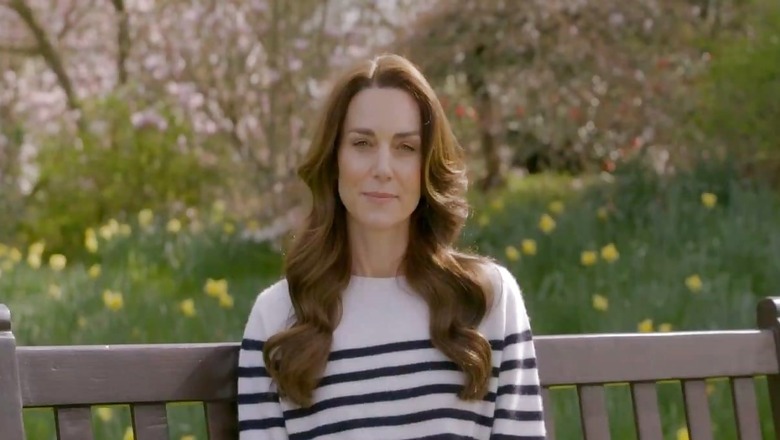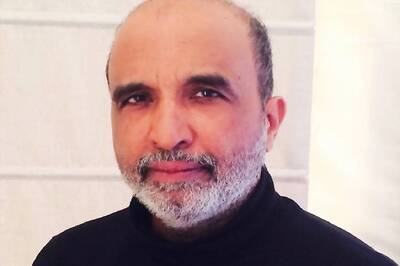Kate Middleton Reveals Undergoing Preventative Chemotherapy; How Is It Different From Regular Chemo?

views
Kate Middleton, Princess of Wales, on Friday revealed that she has been undergoing preventative chemotherapy after being diagnosed with cancer. However, she refrained from disclosing what kind or stage of cancer she has and said that the treatment started in late February.
In a video, released by Kensington Palace, Princess Catherine said that she underwent a major abdominal surgery in London and had thought that her condition was non-cancerous. “The surgery was successful. However, tests after the operation found cancer had been present,” she added.
Following her medical team’s advice, she began undergoing preventative chemotherapy and is now in the early stages of the same, Kate Middleton said.
WHAT IS PREVENTATIVE CHEMOTHERAPY?
‘Preventative chemotherapy’ is not a medical term, rather it means a wide range of medicines or treatment of different types of cancer. “It’s not a medical term, but I think we all agree that she is referring to adjuvant chemotherapy,” Time.com reported while quoting Dr Katherine Van Loon, professor of medicine and a gastrointestinal oncologist at the University of Calfornia, San Franciso (not personally connected to Kate’s case).
Van Loon explained that the treatment is mostly the same chemotherapy drugs that are used for active or advanced cancer patients.
What adjuvant chemotherapy does is that it finishes off any remaining, micro level cell that may have deceived a surgeon’s eye and been missed. It kills any cells that may have escaped and spread to other body parts, the Time.com report added.
Dr Jeremy Jones, interim chair, hematology and oncology, Mayo Clinic — also no personal links to Kate’s case — explained that depending on the cancer type, it has been seen in studies that three too six months of chemotherapy after surgery can assist in reducing the risk of cancer’s return. “It’s standard of care to reduce the risk of recurrence for many types of cancer,” Jones was quoted as saying.
The decision of going forward with adjuvant chemotherapy is based on several factors, but mainly the stage of cancer, Jones noted.
Stage of cancer means whether the cancerous cells have spread to lymph nodes or other body parts, Jones said, adding that, adjuvant chemo is mostly taken up for cancers in the later stage that carry a higher risk of coming back.
Adjuvant chemotherapy is normally suggested “if there is some concern based on the pathology (of the tumour) or the patient’s clinical history to suggest they are at risk of the cancer returning in the future. It is something to give additional assurance that the caner won’t come back or metastasize in the future,” Van Loon was quoted as saying by Time.com.
If doctors are being “ultra conservative,” they might consider adjuvant chemo for a younger patient as well.
PREVENTATIVE VS REGULAR CHEMO
Dr Jones from the Mayo Clinic noted that after removal of all visible cancer traces during surgery, doctors might prescribe any one of the several available agents that are used to treat advanced cancer.
It may be so that sometimes the doses are given in small does, but mostly they are given in the same doses as for treating cancer, Jones added.
Director of women’s health research at UCLA Jonsson Comprehensive Cancer Centre, Dr Beth Karlan — also no personal link to Kate’s case — took note that people receiving adjuvant chemo might need short course in comparison to those receiving regular chemo to treat severe disease.
Mostly, drugs are administered via infusion at a hospital or facility over a few hours. But it is notable that some persons may need more time, for them, patients may be sent home with a port and a pump that will administer the chemotherapy continuously over a day or so, Time.com reported. Majority of the preventive chemotherapy lasts at least three months.
Karlan said, “There is a lot of evidence to support adjuvant chemotherapy impacting overall survival, and allowing patients to live years longer and perhaps even effecting a cure.” This chemo is hope that it prevents the recurrence of cancer and thereby allows one to live a full life. “The example she is providing with her message will have a salutary effect on so many other people.” Karlan was quoted as saying.




















Comments
0 comment